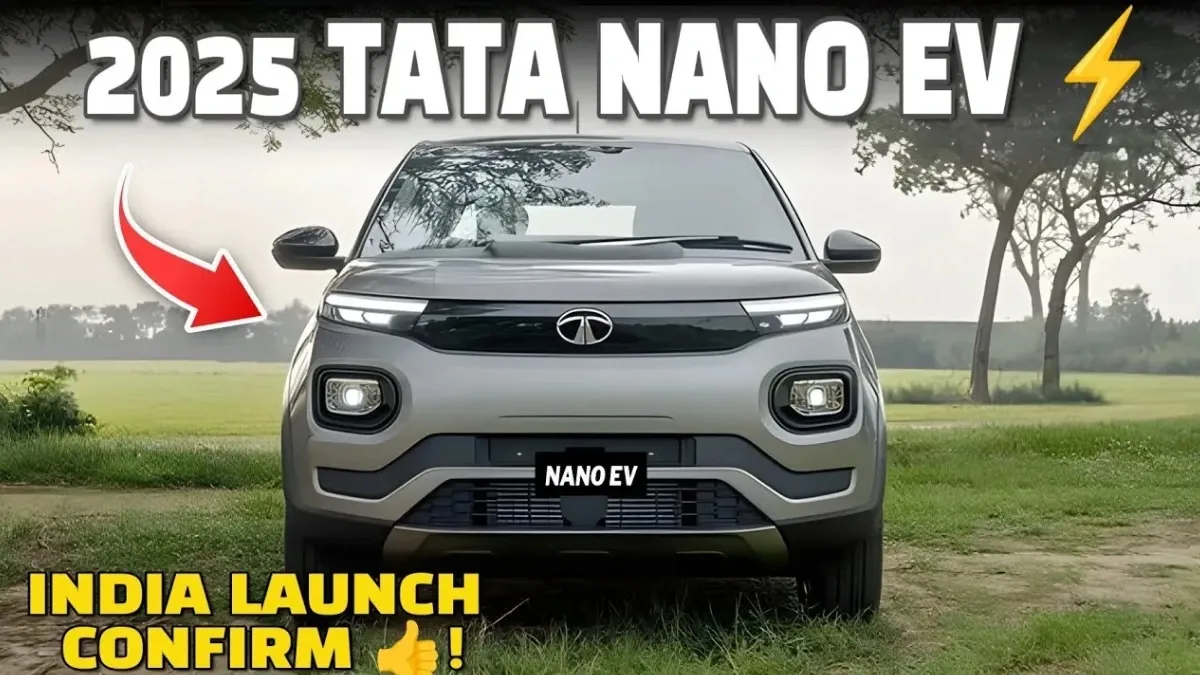Tata Nano, once known as the world’s most affordable car, is rumored to make a comeback — this time as an electric vehicle. The Tata Nano EV aims to redefine city commuting by combining compact design, affordability, and green mobility. Designed for urban users looking for a small, nimble, and eco-friendly car, the Nano EV could be the next step in Tata’s growing electric vehicle lineup. While the official launch is still awaited, here’s what we can expect from this modern electric reinterpretation of an Indian classic.
Exterior Design: Smart and Compact
The Nano EV is expected to retain the compact footprint of the original Nano, making it ideal for tight city streets and parking spaces. However, the design will likely get major upgrades to suit modern tastes and electric vehicle aesthetics.
Expect changes like:
- Sleeker LED headlamps
- Closed front grille (typical of EVs)
- Stylish alloy wheels
- Redesigned bumpers
- Contemporary color options with EV-themed accents
While the basic silhouette may remain familiar, the detailing will align with Tata’s latest design language seen on their EV models.
Interior and Cabin Feature
Inside, the Tata Nano EV will likely offer more modern and user-friendly interiors compared to its predecessor. A smart cabin layout with premium-feel materials, digital instrument cluster, and infotainment options could make it a practical and comfortable city car.
Expected interior features:
- Digital speedometer and MID
- Touchscreen infotainment system (in higher variants)
- Automatic climate control
- Power windows
- USB and fast-charging ports
- Foldable rear seats for extra boot space
Despite being a small car, Tata may optimize interior space for better headroom and legroom for four passengers.
Battery and Performance
Tata is expected to equip the Nano EV with a lithium-ion battery pack similar to the ones used in Tiago EV or Tigor EV, but optimized for a lighter, smaller vehicle. Battery capacity may range between 15 kWh to 20 kWh, targeting a real-world range of 200–250 km on a single charge.
Key performance expectations:
- 0–60 km/h in under 10 seconds
- Top speed of 80–100 km/h (city-focused)
- Fast charging support (optional)
- Regenerative braking
It will be a perfect second car for urban users or a first EV for small families and college-goers.
Range and Charging Options
The Nano EV will likely support both regular home charging (15A socket) and fast charging (CCS2 or Type 2). Home charging may take 5–6 hours, while DC fast charging could offer 80% battery in under 60 minutes.
Range is expected to be suitable for daily city commutes, school runs, and office travel, reducing running costs significantly compared to petrol-powered hatchbacks.
Technology and Connectivity
Tata’s electric range is known for offering modern tech even in compact cars. The Nano EV could include:
- Smart drive modes (Eco/City)
- Telematics and vehicle tracking (via Tata ZConnect app)
- Remote locking/unlocking
- Real-time range estimator
- Over-the-air software updates (for infotainment system)
Safety Features
Although compact, Tata may ensure basic safety in the Nano EV, including:
- Dual airbags (in higher variants)
- ABS with EBD
- Rear parking sensors
- High-strength body shell
- Child lock and seat belt reminders
The aim would be to provide urban safety within a tight budget.
Price Expectation and Market Positioning
The Tata Nano EV is expected to be priced between ₹4.5 lakh to ₹6.5 lakh (ex-showroom), making it India’s most affordable electric car. It will directly appeal to budget-conscious buyers looking to switch to EVs without compromising on practicality or reliability.
Conclusion:
The Tata Nano EV could mark a revolutionary return of an iconic Indian nameplate — this time with a green and modern twist. As urban mobility shifts towards electric, the Nano EV offers a smart, practical, and environment-friendly solution for the masses. With Tata’s proven EV expertise and the Nano’s strong brand recall, this little car could once again become the talk of the town.
Highlights:
- Compact electric hatchback for city use
- 200–250 km expected range
- Fast charging support
- Smart digital features
- Affordable EV under ₹6.5 lakh
- Easy to park, easy to maintain






